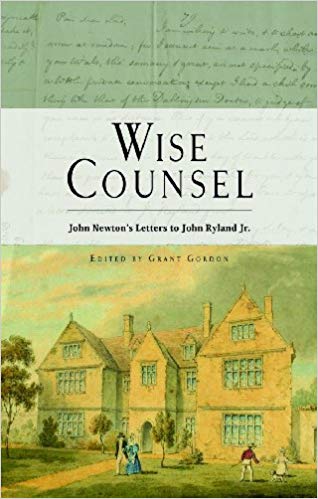This volume brings together 83 letters from John Newton to John Ryland Jr most of which have not been previously published. The editor, Grant Gordon, has done a great deal of successful detective work to discover these documents which shed a fascinating light on the Anglican minister and his long-lived friendship with his Baptist colleague.
Background information is given to each letter, and further notes give detailed facts about references in the letters which might otherwise be obscure to today’s readers. Occasionally more explanation about theological issues would have been helpful. For example, in the first letter Ryland makes intriguing comments on the subject of justification which would have been interesting to explore.
The content of this valuable collection consists of classic Newton ‘wise counsel’ on a wide array of subjects — publishing, marriage, how best to handle (or avoid) doctrinal controversy, how to deal with second-hand allegations against preachers, involvement in politics and a host of other topics.
Newton has touching and comforting words on Ryland’s wife’s last illness and death (letters 37, 38) and subsequently advises Ryland on re-marriage, encouraging such a step (letter 42). He writes movingly of the death of his own wife (letter 49).
There is a troubling description of the difficulties that Ryland experienced in his church in Northampton with hyper-Calvinists, including William Huntington (letters 51, 52).
Newton described his aims in his London ministry, besides ‘preaching the salvation of God to sinners’, as (letter 29) inculcating ‘peace and love among those who are upon the one foundation’ and insisting ‘much upon the life of God in the soul’.
On the Christian’s involvement in politics, he advises (letter 16): ‘let the dead bury the dead; to mourn for what they cannot help, and to ply the throne of grace as the best and most effectual method of serving their country’.
On disagreements between high and moderate Calvinists, he seeks peace: ‘Good men, must, at bottom, mean the same thing’ (letter 36). He is suspicious about disagreements where the parties are ‘fighting not merely for truth but for victory…whereas if they would explain and qualify there is perhaps a medium point, in which they might meet at once and be at peace’ (letter 45).
Newton writes clearly, simply and directly. His letters will repay anyone who peruses them with help, comfort and an abundance of ‘wise counsel’.










